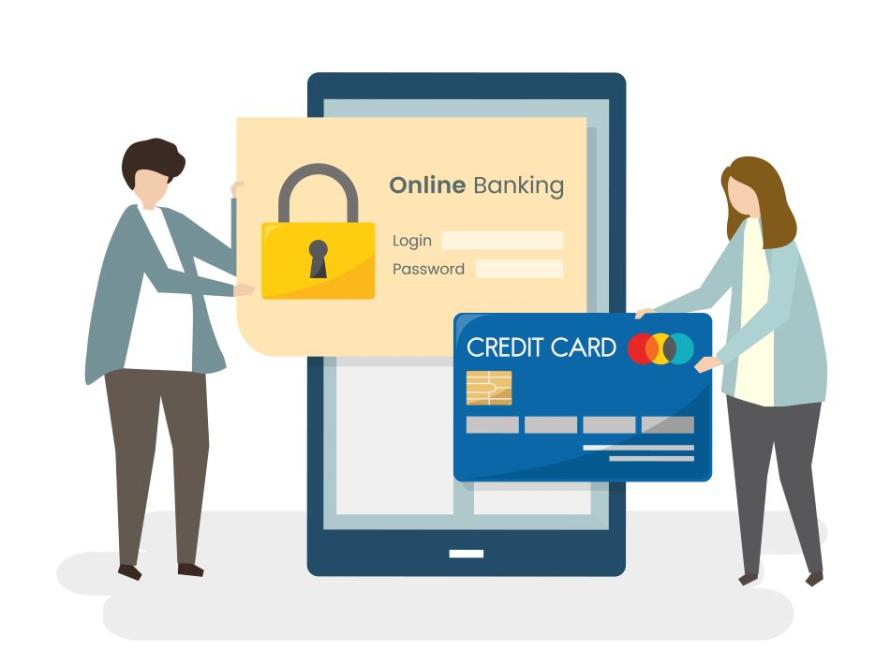Smart Tips for Protecting Your Credit Card Information

Credit cards have become very popular in India because they make shopping and paying bills easier. But with this convenience, it is important to keep your credit card information safe from fraud and theft. Countless individuals have encountered issues such as unapproved charges, making it crucial to understand how to safeguard your card information.
In this blog, we will share simple and effective tips that anyone can use to keep their credit card information secure.
1. Use Strong and Unique Passwords for Online Accounts
Many of us save credit card details on shopping websites or payment apps to make future purchases easier. While this is convenient, it can be risky if your account is not properly protected. Creating powerful and one-of-a-kind passwords is among the smartest methods to protect your accounts. Avoid using obvious passwords like "123456" or personal info such as your date of birth. Instead, use a combination of letters, numbers, and symbols to create a strong password. If remembering many passwords is difficult, consider using a password manager app. These apps generate strong passwords and store them securely, so you don’t have to remember them all.
2. Shop Only on Trusted and Secure Websites
Check a website’s safety before entering your credit card details on the internet. Look for “https://” in the address and a padlock symbol. These mean the site encrypts your data and protects it during transmission.
Avoid unknown or suspicious websites, as they may not be safe. Trusted Indian sites like Amazon, Flipkart, and Paytm are generally secure for online payments.
3. Enable Two-Factor Authentication (2FA)
Two-factor authentication provides an additional shield to protect your accounts. Besides entering your password, you will need to provide a second form of verification, usually a one-time password (OTP) sent to your phone or email. Many Indian banks and payment apps now support 2FA. Activating this feature means that even if someone steals your password, they will not be able to access your account without the OTP. It’s a simple but powerful way to protect your credit card information.
4. Avoid Using Public Wi-Fi for Payments
Using Wi-Fi at cafés or transit spots can be risky, as these open networks often lack proper security, allowing cybercriminals to access your personal information. Never enter your credit card details when connected to public Wi-Fi.
If you must use public Wi-Fi, avoid transactions or use a Virtual Private Network (VPN) to encrypt your internet connection.
5. Don’t Save Credit Card Details on Public or Shared Devices
Never enter or save credit card information on shared computers or devices used by many people, like those in internet cafes. These devices may have malicious software that can record your data.
Always use your personal devices for online payments to stay safe.
6. Use Virtual Credit Cards or One-Time Use Cards
Many banks in India offer virtual credit cards or one-time use cards. These are temporary digital card numbers created for single online transactions, protecting your real card information from exposure. They help protect your actual card details because if the virtual card number gets stolen, your real card remains safe. Virtual cards are an excellent option to reduce fraud risk when shopping online.
7. Regularly Check Your Credit Card Statements
One of the best ways to catch fraud early is by frequently checking your credit card statements. Review every transaction carefully to ensure that you recognize all purchases. If you spot any unauthorized charges, immediately contact your bank or credit card provider to report it. Quick reporting can help minimize the damage and sometimes get your money back.
8. Keep Your Devices Updated and Secure
Your smartphone, tablet, and computer store lots of personal information, including credit card details saved in apps or browsers. To keep your credit card data safe, protect your devices with passwords, fingerprint locks, or face recognition. Always update your operating system and apps to the latest versions because updates often include security fixes. Also, install trusted antivirus software to protect your devices from malware.
9. Never Share Your Credit Card Details
Never reveal your card details like the number, CVV, PIN, or OTP to anyone. Banks in India will never ask for this information over phone or email.
Be cautious of scam calls or messages pretending to be bank officials. Always verify before sharing any details.
10. Always Log Out After Transactions
After finishing online shopping or banking, log out of your account, especially if using a shared or public device. This prevents others from accessing your sensitive information.
Even on personal devices, logging out is a good habit to keep your accounts safe.
Final Thoughts
Credit cards are very useful but keeping them safe requires some care. By using strong passwords, shopping on trusted sites, enabling two-factor authentication, avoiding public Wi-Fi, and monitoring your transactions regularly, you can protect yourself from fraud.
Follow these easy tips and enjoy the benefits of credit cards without worry. Protect your financial information today for a safer tomorrow.




Leave a Reply